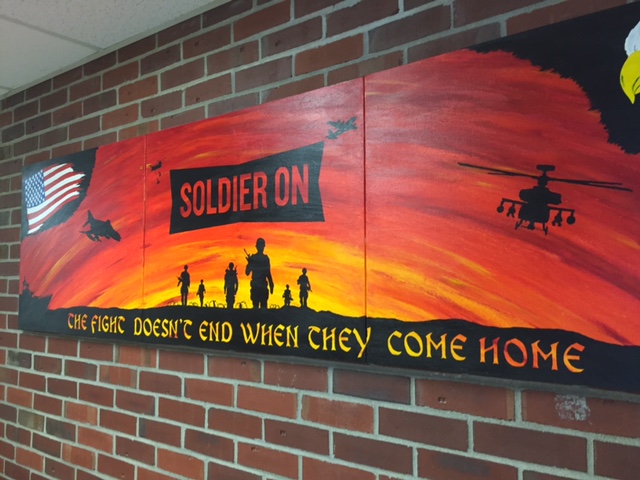More Vets Get Alternative Treatment For PTSD, But Not Always Evidence-Based

Credit: Karen Brown for NEPR
The Department of Veterans Affairs estimates up to 30 percent of former service members — from the Vietnam war to Iraq and Afghanistan — have Post Traumatic Stress Disorder. They don’t all seek treatment, but among those who do, the VA says 20 to 40 percent don’t get better with the standard regimen of therapy, medication, or both. Increasingly veterans are seeking out alternative mental health care — and much of it untested.
At Soldier On in Pittsfield, Massachusetts — a transitional housing organization for veterans — director Jack Downing has seen hundreds of clients cycle in and out of homelessness, depression, substance abuse and other effects of trauma.
Soldier On offers psychotherapy and anti-depressants to deal with PTSD — the nightmares, flashbacks, anxiety — but Downing says many chronically ill vets don’t stick with the treatment.
“Much of what we do medically just doesn’t work,” Downing says. “We keep doing these things because we don’t know what else to do. As a result of that, we were looking for alternatives that would work.”
